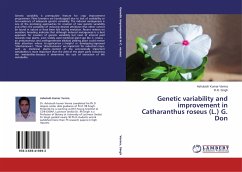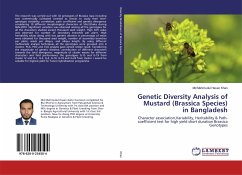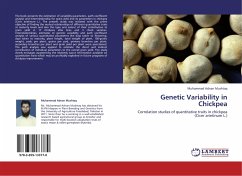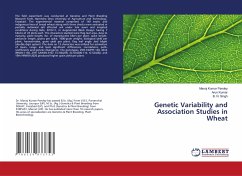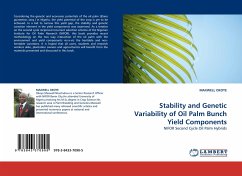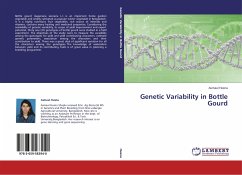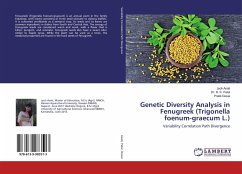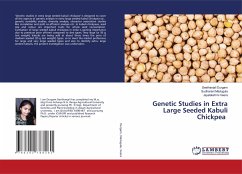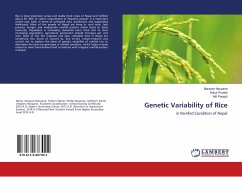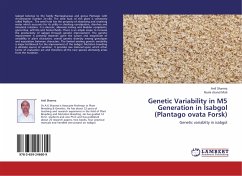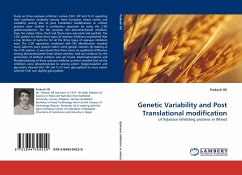
Genetic Variability and Post Translational modification
of Xylanase Inhibiting proteins in Wheat
Versandkostenfrei!
Versandfertig in 6-10 Tagen
32,99 €
inkl. MwSt.

PAYBACK Punkte
16 °P sammeln!
Study on three xylanase inhibitors namely TAXI, XIP and TL-XI regarding their qualitative variability among three European wheat variety and variability arising due to post translation modifications or artifact proteins were studied in proteomics approach by using the 2-DE gelelectrophoresis. For this purpose, the abovementioned inhibitors from the vatiery Claire, Koch and Zhora were extracted and purified. The 2-DE pattern for these three types of xylanase inhibitors established that a big families of isoforms for all the three types of xylanase inhibitors exist. The 2-DE separation combined ...
Study on three xylanase inhibitors namely TAXI, XIP and TL-XI regarding their qualitative variability among three European wheat variety and variability arising due to post translation modifications or artifact proteins were studied in proteomics approach by using the 2-DE gelelectrophoresis. For this purpose, the abovementioned inhibitors from the vatiery Claire, Koch and Zhora were extracted and purified. The 2-DE pattern for these three types of xylanase inhibitors established that a big families of isoforms for all the three types of xylanase inhibitors exist. The 2-DE separation combined with MS identification revealed many isoforms were present within some genetic variants. By looking at the 2-DE pattern, it was found that there exists no qualitative difference among abovementioned three wheat varieties. And any evidence for the production of artificial proteins was not found. Dephosphorylation and Phosphostaining of these xylanase inhibitor proteins revealed that all the inhibitors were phosphorylated to varying extent. Deglycosylation and glycostain showed that XIP and TL-XI were glycosylated to more extent whereas TAXI was slightly glycosylated.



